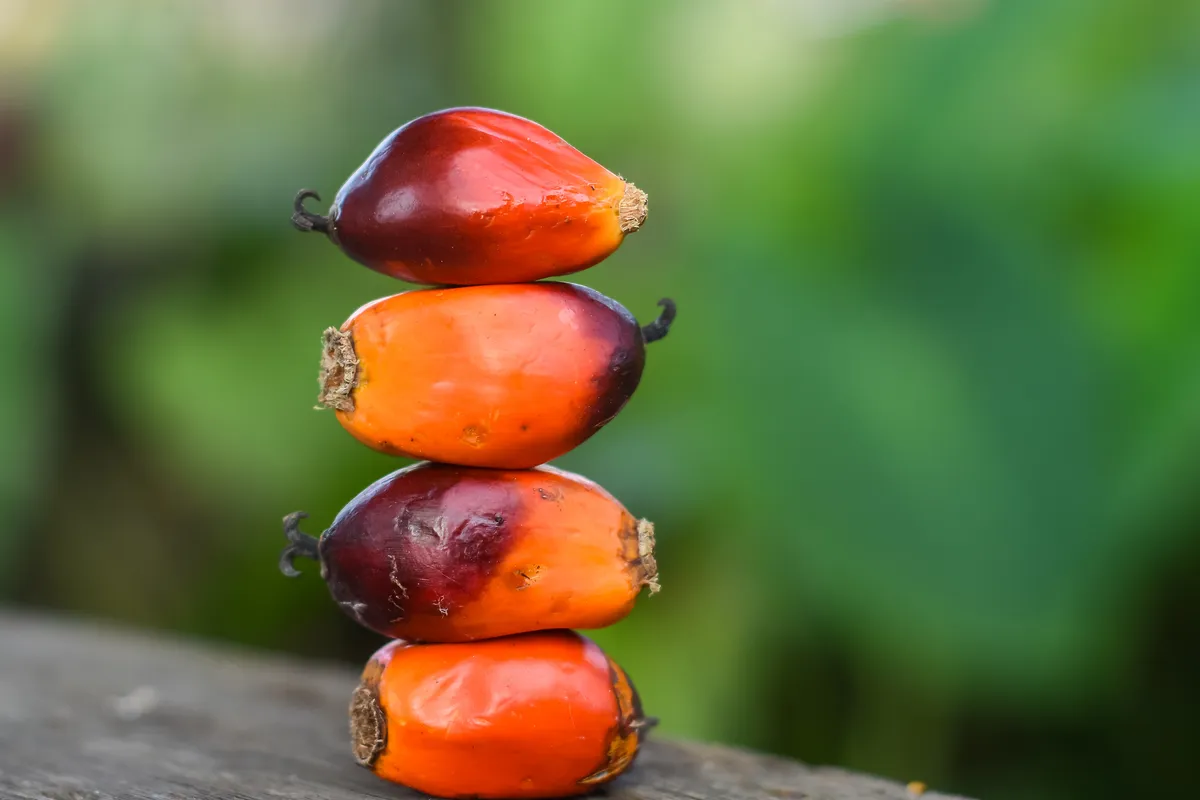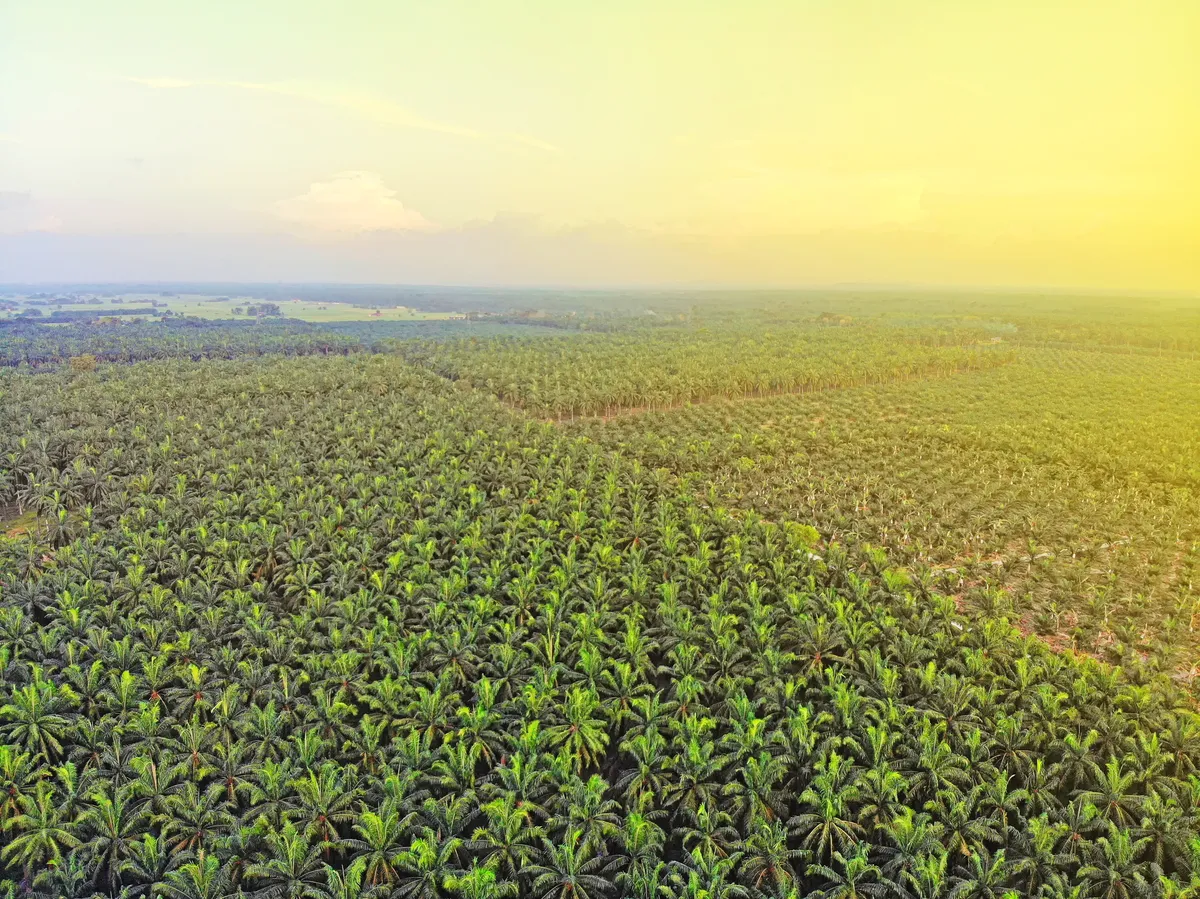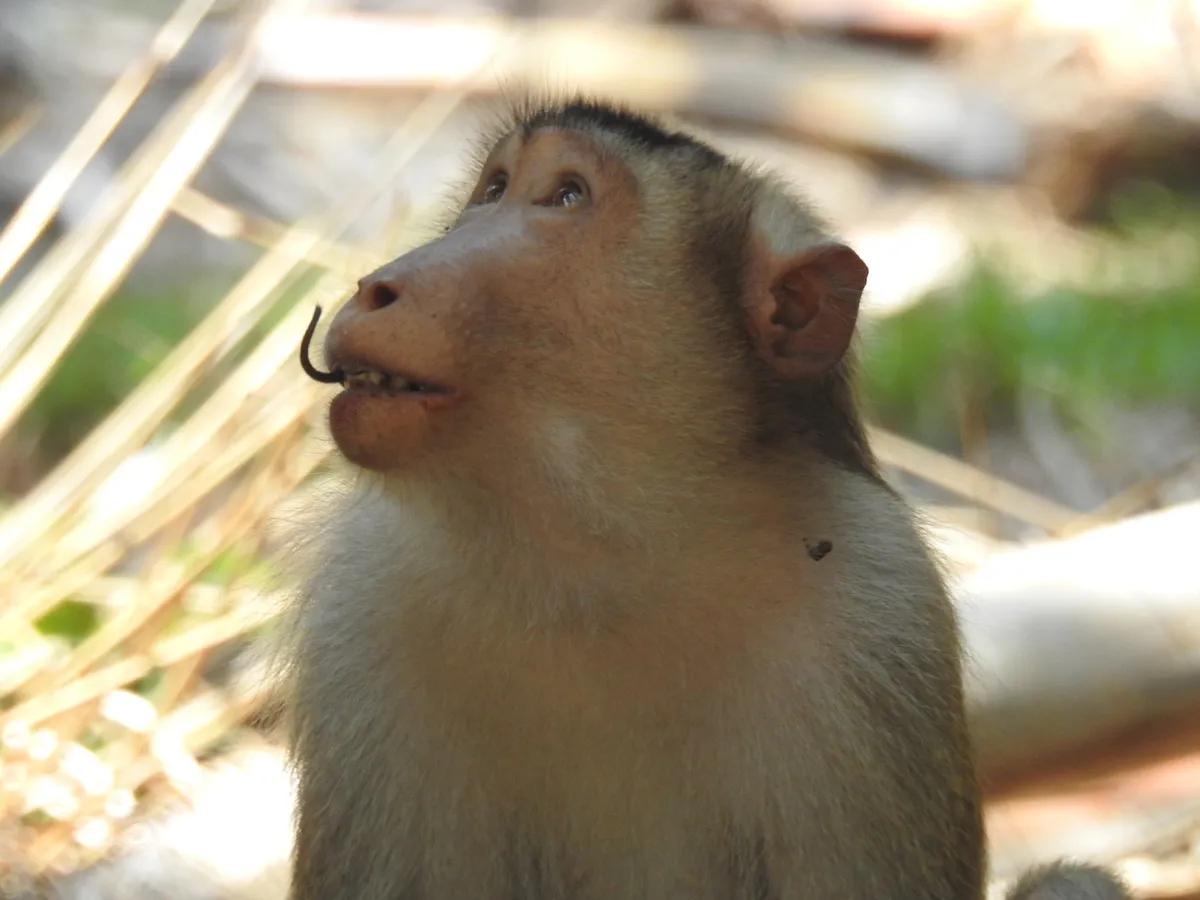A surprising and mutually beneficial phenomenon, for macaques and humans, has been documented in Malaysian palm oil plantations. Pig-tailed macaques, previously thought to be detrimental crop-pests, have been observed feeding regularly on the rats that infest the plantations.
This behaviour is surprising to researchers, not because macaques don’t normally eat meat, but because of how many rats they have been seen to consume. Macaques are mainly fruit eaters, but are in fact omnivores and will eat a wide variety of foods including small animals.
The scale of their rat-eating and the targeted way in which they forage for them has amazed researchers.
“I really did not expect them to catch these relatively large rodents and consume so much meat," says Dr Nadine Ruppert, co-author of the study.
"As for their rat-feeding behaviour in the plantations, it was fascinating to see that they use a very targeted foraging strategy to find rats in the palms and that they strategically and frequently look for them, and not just opportunistically catch rats when these "walk by". Our field team was also shocked to see them devouring these large rats head first, which can admittedly be quite gross to watch.”
This behaviour could be enormously beneficial to oil palm farmers, because rats are major pests for them, causing yield losses of up to 10%. They feed on the palm fruits, destroying the pulp from which the precious oil is derived and causing monetary losses of approximately 930 million USD per year.

Currently the way farmers deal with this problem is to lay down vast amounts of rat poisons. However these are often ineffective, as the rodents can develop resistances against rodenticides. Additionally, these poisons are expensive, and have been shown to harm non-target species and the environment.
The use of biological pest controls (the technique of controlling pests using other organisms) is not novel in this region. Barn owls, the other major rat predator, are kept and reared in plantations for the purpose of keeping down the rat population. However, the way in which macaques hunt for rats is very different to owls.
“While barn owls fly close to the plantation ground at night to ambush on rats in the open, the macaques lure them out of the crevices of palm stems during the day, thus perfectly complementing rat predation by nocturnal owls,” explains Ruppert. “More diverse predators may be more effective in helping to control these pest crops.”
She is clear however, that macaques should not be put to work on plantations as owls are.
“We are strictly against the capture and "use" of wild primates for human purposes! Unlike barn owls that are kept and reared in plantations and rice fields, macaques need an intact forest to survive.”
What the scientists are advocating for instead is that farmers and plantation owners work to maintain forest corridors and buffers in and along plantations to allow the macaques better access to the palm, so that they can forage and provide rodent control. This would be a mutually beneficial arrangement, as the farmers would save money on expensive rat poisons and their yields would increase.

It may take a change in attitudes before the macaques are welcomed onto the plantations with open arms. They have been previously seen as pests, as they too feed on the palm fruits. Human-macaque conflict is common, with macaques being trapped, translocated, and chased off with firecrackers.
However, this study has shown that through eating so many rats the macaques prevent more damage than they cause, with each macaque group reducing rat populations by about 3000 individuals per year, mitigating annual losses of 112 USD per hectare.
This study provides a strong argument for conserving rainforest habitat around oil palm plantations. Allowing the macaques to live alongside the palm would not only protect these vulnerable primates and many other forest-dwelling species, but would also bring significant economic benefits to farmers, as well as increasing the sustainability of an often destructive industry.
Truly a win-win situation! Just maybe not for the rats.

Read the full paper in Current Biology.
Main image: A pig-tailed macaque biting the head off a rat. © Anna Holzner
